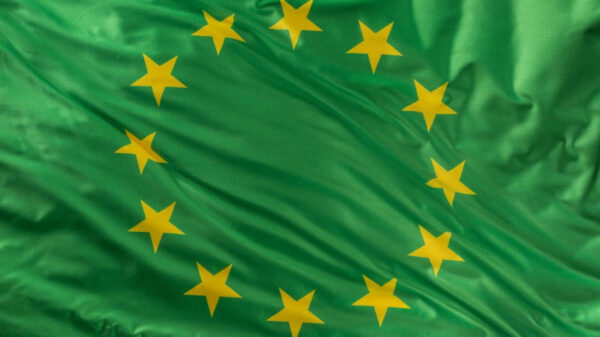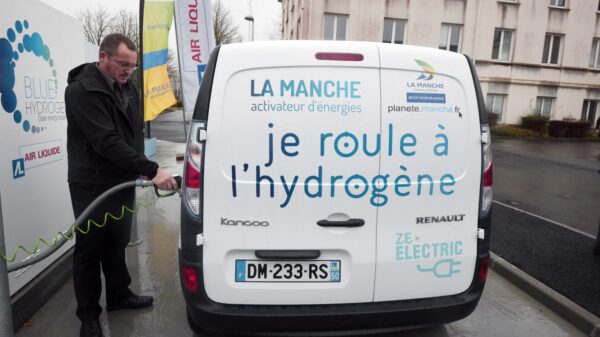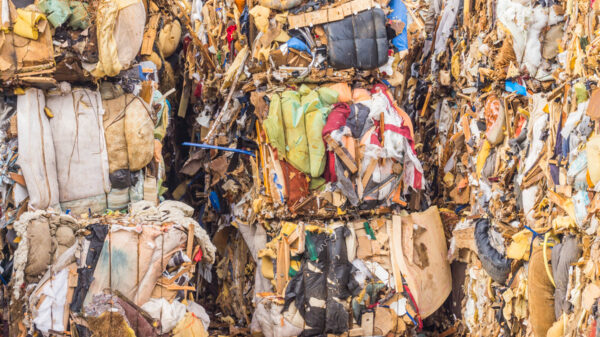By Adrian Browne, Political reporter, BBC Wales News • Rowenna Hoskin, BBC News
 BBC
BBCLabour has won back a string of Welsh seats from the Conservatives, as Sir Keir Starmer’s landslide election victory was confirmed.
The Tories were wiped out in Wales, with Welsh Secretary David TC Davies losing his seat, as well as the three former Welsh secretaries, Alun Cairns, Stephen Crabb and Simon Hart.
Another ousted Tory was Craig Williams, former aide to Rishi Sunak, who had party support withdrawn after admitting betting on the date of the election.
On a triumphant night for Labour, and a disastrous one for the Tories, Plaid Cymru celebrated winning both its target seats of Ynys Môn and Caerfyrddin from the Conservatives.
There was good news for the Liberal Democrats, who took back Brecon, Radnor and Cwm Tawe seat from the Conservatives, removing Wales Office minister Fay Jones from parliament.
It means the Lib Dems have a Welsh MP for the first time since 2019.
Labour finished on 27 seats, up nine on 2019, Plaid on four and the Lib Dems one.
Labour won back Bridgend, Monmouthshire and Wrexham and also took the new seats of Bangor Aberconwy, Clwyd North, Clwyd East, Montgomeryshire and Glyndŵr and Mid and South Pembrokeshire from the Conservatives.


Labour held Swansea West, with a win for new candidate and Starmer ally Torsten Bell, widely seen as ripe for early promotion in the new government expected to take power on Friday.
Labour retained Gower, Pontypridd, Torfaen, Caerphilly, Newport East, Aberfan Maesteg, Rhondda and Ogmore and Cardiff South and Penarth.
The party also kept control of Alyn and Deeside, Llanelli, Cardiff West, Cardiff East, Merthyr Tydfil and Aberdare and the Blaenau Gwent and Rhymney constituency.
Labour’s Kanishka Narayan became the first ethnic minority Welsh MP, in the Vale of Glamorgan.
The Tories were reduced from 14 seats in Boris Johnson’s 2019 election victory to none under Rishi Sunak.
Labour, with the help of Plaid Cymru, saw the Tories fall to zero seats in Wales on Friday for the first time since 2001.
But Labour also saw its vote share fall to 37%, from 40.9%.
They have been badly damaged by the performance of Nigel Farage’s Reform UK, which split the right-wing vote and came second in a series of seats.
Plaid Cymru hugely increased its majority in Ceredigion Preseli and easily retained Dwyfor Meirionnydd, finishing the night on four seats.
Mr Davies, who had represented Monmouth since 2005 (now called Monmouthshire after boundary changes) , is the first Welsh secretary to lose his seat while in office since the post was created in 1964.
“I’ve had great support from the local association, but the fact is, people wanted a change,” he said. “That’s the way it goes in democracy.”
He urged Conservatives to “stay calm” and not blame each other for expected poor result.
Leader of the Welsh Conservatives Andrew RT Davies said he was “bloody angry” following the result.
“We have had a very, very bitter blow to us at the general election,” he said.
He insisted voters had “warmed” to the work the Conservatives were doing in Senedd and blamed his party’s defeat on the “national messaging and national picture”.
When asked how she felt about becoming the new Welsh Secretary, Shadow Welsh Secretary Jo Stevens said we “shouldn’t assume anything until Keir Starmer becomes prime minister today and starts to make his appointments”.
She said the new Labour UK government would “work in partnership with the Welsh government”.
“Having two Labour governments, one at each end of the M4, working in an atmosphere of trust and respect and collaboration rather than constant frictions means that we will deliver better outcomes for Wales,” she said.
BBC Radio Wales also asked her about calls to give Wales billions of pounds off the back of HS2, which is designated an England and Wales project despite ending in Birmingham.
She responded: “I cannot make unfunded spending commitments. I would absolutely love to magic up billions or millions of pounds but it’s impossible and anyone suggesting otherwise is indulging in fantasy promises.”
Sir Robert Buckland, Welsh secretary under Boris Johnson and Liz Truss, became the first Conservative in the UK to lose his seat on the night, ousted in Swindon South by Labour’s Heidi Alexander.
The Llanelli-born Tory replaced Simon Hart in the Wales Office in 2022 in Mr Johnson’s government, and was kept in the post by Ms Truss.

 PA
PASir Robert said UK politics was at a “crossroads”, and asked “do we value those who work to bring people together” or “shrug our shoulders and accept that politics is a mere circus”.
He also criticised Rishi Sunak’s national service policy, which he said was “totally over-sold” to appeal to “a more populist base”.
“That’s a mistake, I’m fed up, the time has gone for cheap populism”.
The former Labour leader and ex-Islwyn MP Lord Kinnock told ITV News the Labour landslide was “the greatest comeback since Lazarus”.


Tory Senedd group leader Andrew RT Davies said he was “angry” about the party’s election campaign.
“I have no words that can describe my frustration at some points in the campaign,” he told the BBC Wales results programme.
Some of his fury was directed at Rishi Sunak’s decision to call the general election on 22 May.
“No one really understood why we were sitting here tonight instead of the autumn.”
He said that an autumn poll would have been difficult still, but the party needed the “best possible chance”.
“You’ll see my anger at the Welsh (Conservative) Party board meeting,” he said, suggesting Tories had paid the price of “the shenanigans over the past five years”.
Reform candidate for Montgomeryshire and Glyndŵr, Oliver Lewis, strongly criticised the media for reporting on the behaviour of what he called “a few deviant candidates” in his party.
Responding to questions about Nigel Farage’s views on Vladimir Putin and allegations of racist comments by candidates, he said people “see through” the negative press “which institutions like the BBC give us”.
The “vast majority of our candidates are centrist and sensible,” he said.
He said: “To come second place from a standing start in 40 constituencies is absolutely terrific.”
“I’m ecstatic to have beaten Craig Williams into second place and put the conservatives into third place.”
Wales had 40 MPs in the last parliament but that drops to 32 seats at this election, following a review aimed at equalising the size of UK constituencies.
The Green party won four seats, and Anthony Slaughter, leader of the Wales Green Party and Green candidate for Cardiff South and Penarth, said he “will get double figures next time”.
He added that the party got 15 second places, one of which being Cardiff.
“The vote tonight has proven it, I’m very very confident we will get voted green representation in the Senedd.”
Ann Davies, the new Plaid Cymru MP for Caerfyrddin took the seat from Conservative chief whip Simon Hart – who finished third.
“I am delighted beyond words that we’ve won this,” she told BBC Radio Wales.
“Every party has a lot of work to do but this is a fantastic platform on which to build.”
Jane Dodds, Welsh Liberal Democrats leader said the party was “very very pleased we’re back on the electorate map” with David Chadwick’s win in Brecon, Radnor and Cwm Tawe.
Wales saw the biggest fall in voter turnout in Britain – compared with Scotland and all English regions.
Only Yorkshire and Humber (55.7%) had a lower turnout.
The average turnout in Wales was 56.2% – which was more than 10% down on the last general election in December 2019.
All Welsh constituencies saw a fall on the last election.
The highest turnouts were in Monmouthshire and Cardiff North, with more than two thirds of voters turning out.
The lowest were in the heads of the Valleys, in Blaenau Gwent and Rhymney – 42.7% – which also saw the biggest percentage fall on last time.
Next lowest was in Merthyr Tydfil and Aberdare (47.3%).
Analysis from BBC Wales political editor Gareth Lewis
Given what happened five years ago, what a story we have here in Wales.
Labour has won big and the Conservatives have been wiped out.
But beneath that are so many subplots.
Labour’s achievements come despite a significant drop in their share of the vote, and the lowest raw number of votes since the 1930s.
It’s one of the oddities of the first past the post system that you can win by trying to concentrate votes exactly where you need them.
That relative lack of enthusiasm from voters is already causing some concern, jubilant mood notwithstanding.
One of the Labour campaign mantras has been that Wales will benefit from two Labour governments working together.
Voters will want to see that in action. Quickly.
Former first minister Carwyn Jones told us in the small hours that his party needed to hit the ground running.
The drop in share means they’ll need to “look under the bonnet” according to another former FM Mark Drakeford.
Seats at the 2026 Senedd election will be decided on share – under proportional representation – and Labour’s polling for that election isn’t looking great.
It’s an open question whether that is down to the unpopularity of some Welsh Labour Government policies such as 20mph or the difficulties of the current FM Vaughan Gething.
Other parties are waiting to pounce.
Plaid Cymru had a dream night and the Lib Dems took their target seat too.
Reform has emerged as a real contender, coming second in 13 of the 32 seats and pushing Labour incredibly close in Llanelli.
The Conservatives had a shocker – Reform ate into their vote here as across the UK – although they almost held on in Ynys Mon and Brecon Radnor and Cwm Tawe.
They are now looking to rebuild, although there are already clear suggestions that there will be a very “Welsh” theme to how that’s done here as opposed to what happens in Westminster.
The dynamics in Wales have always been different because we have not one but two governments – both now Labour.
Once their celebrations die down we’ll see how that story will play out, and how its outcome will affect you.
Despite the big win, with a low share and turnout in general low, voters look like they still need some convincing.
































